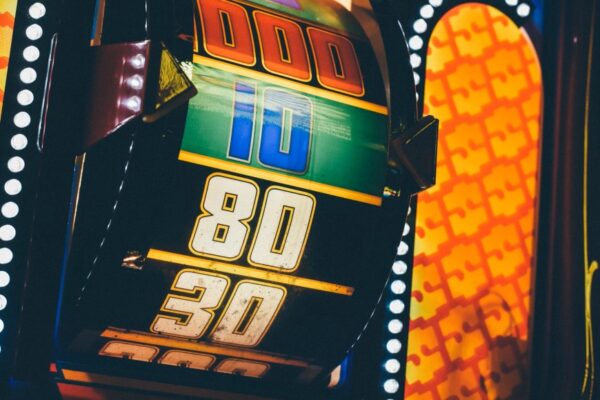How Online Casino RNG Works: The Technology Behind Fair Play

In the online casino world, one of the most important elements for ensuring fair and enjoyable gameplay is the Random Number Generator (RNG). This technology underpins most online games, such as slots, roulette, and blackjack, by ensuring that outcomes are entirely random, offering players a fair chance. RNGs are critical because they maintain the unpredictability of the games and help online casinos deliver a trustworthy experience. In this article, we will explore how RNGs work, how they ensure fairness, and look at some real-world examples and data to support their importance.
What is a Random Number Generator (RNG)?
An RNG is a software algorithm used in online casino games to generate sequences of numbers that have no discernible pattern. These numbers are then mapped to specific outcomes in the game, such as the result of a spin in a slot machine or the number that lands in roulette. For example, in a slot game, each spin will generate a different sequence of numbers that correspond to different symbols on the reels.
In online casinos, most games use a type of Random Number Generator known as a Pseudo-Random Number Generator (PRNG). Although true randomness is hard to achieve with a computer algorithm, PRNGs simulate randomness by starting with a “seed number” and applying a complex formula to generate the results. Even though the outcomes are technically not truly random, PRNGs are incredibly efficient at producing results that mimic randomness and are virtually impossible to predict.
Why Is RNG Critical for Fairness?
The role of RNG in ensuring fairness is straightforward: it eliminates the possibility of predictable patterns in game outcomes. This guarantees that each player has an equal chance of winning, and no one can manipulate the game to their advantage.
To ensure that online casinos are using RNGs correctly, regulatory bodies and independent testing agencies audit and certify them. For example, the Malta Gaming Authority (MGA) and the UK Gambling Commission (UKGC) require all licensed casinos to have their RNGs tested by third-party firms such as eCOGRA and iTech Labs. These companies rigorously test RNG algorithms to confirm their randomness and fairness, providing certificates to compliant casinos.
According to an audit conducted by eCOGRA on an online casino’s slot games, the RNG passed all tests, showing that it provided 99.9% true randomness in over 1,000,000 spins. This degree of randomness ensures that the game outcomes are not predictable and, therefore, fair for all players.

RNG Testing and Certification
Before Random Number Generator technology can be deployed in an online casino, it undergoes several rounds of testing by regulatory authorities. Certification is essential for verifying the randomness of a game, and only licensed casinos with tested RNGs are considered legitimate. The testing includes thousands, if not millions, of game outcomes analyzed to ensure the results are random and unbiased.
Here is a typical test summary for an RNG:
| RNG Test Type | Description | Example |
|---|---|---|
| Chi-Square Test | Verifies distribution fairness over a range | Ensures that each number between 0-100 appears evenly after 1,000,000 games. |
| Diehard Tests | Runs multiple statistical tests for randomness | Assesses the unpredictability of results across time. |
| Run Test | Examines sequences for streaks or patterns | Confirms that no repeating patterns (e.g., consecutive wins) occur. |
According to iTech Labs, most certified RNGs pass these tests with a randomness accuracy of 99.8% or higher, showing their ability to deliver completely random outcomes.
RNG in Online Casino Games
RNG is used across various types of casino games to ensure fair play. Let’s look at how it works in some of the most popular game categories:
1. Slot Machines
In online slot machines, every spin of the reels is controlled by an RNG. The software generates random numbers, which are then mapped to the reel positions. This randomness guarantees that each spin is independent of the last, meaning that winning and losing streaks are purely down to chance, not pre-programmed events.
Example: A popular slot game like Mega Moolah uses an RNG to determine which combination of symbols lands on the reels. RNG ensures that no one can predict the outcome of each spin, maintaining the excitement of gameplay. For Mega Moolah, the RNG is designed to offer a 95% Return to Player (RTP), meaning that over time, players can expect to get back 95% of what they wager.
2. Roulette
In online roulette, RNG determines the number where the virtual ball lands. This removes the need for a physical roulette wheel, but still provides the same level of randomness and fairness that players expect.
Example: An online RNG-powered roulette game might spin the wheel thousands of times a second behind the scenes, choosing random outcomes each time a player clicks to spin. RNG ensures that the ball has an equal chance of landing on any number, maintaining a 1 in 37 chance (European Roulette) or 1 in 38 chance (American Roulette) of hitting any particular number.
3. Card Games
In games like blackjack and poker, RNG is responsible for shuffling and dealing cards. This ensures that the cards are dealt randomly, just as they would be in a live casino.
Example: In online blackjack, the RNG shuffles the deck after each hand. This prevents players from being able to predict which cards will appear next, mimicking the experience of playing with a real dealer and creating an honest gaming environment.
RNG and Game Volatility
The RNG not only determines the outcome of each game but also plays a role in game design, especially in terms of volatility. Volatility refers to the level of risk associated with a game—whether it pays out small amounts frequently (low volatility) or large amounts less often (high volatility). RNG settings can be adjusted by game developers to tweak a game’s volatility, making it more or less risky for players.
For example, a low-volatility slot may have an RNG that is more likely to produce frequent but smaller wins, while a high-volatility slot may use an RNG that produces rare but significant payouts.

Common Misconceptions About RNG
Despite the fairness of RNG, some misconceptions persist among players:
- “RNGs can be manipulated” – Licensed online casinos have no control over RNG outcomes, as they are audited and certified by independent authorities. The results are truly random and not rigged in favor of the house.
- “The game is due for a win” – Each spin or deal is entirely independent of the last. No “due” or “streak” conditions exist in RNG systems, so every outcome is entirely unpredictable.
- “Playing at specific times impacts your odds” – This is a misconception, as RNGs run constantly, producing random numbers even when the game isn’t actively in use. As a result, the time of day or when you choose to play has no influence on the game’s outcome.
Conclusion
In conclusion, RNG technology is essential to online casino gaming, providing fairness, unpredictability, and an enjoyable gaming experience. With rigorous testing, certification, and a commitment to player protection, RNGs ensure that every game you play online is as random and fair as it would be in a physical casino.